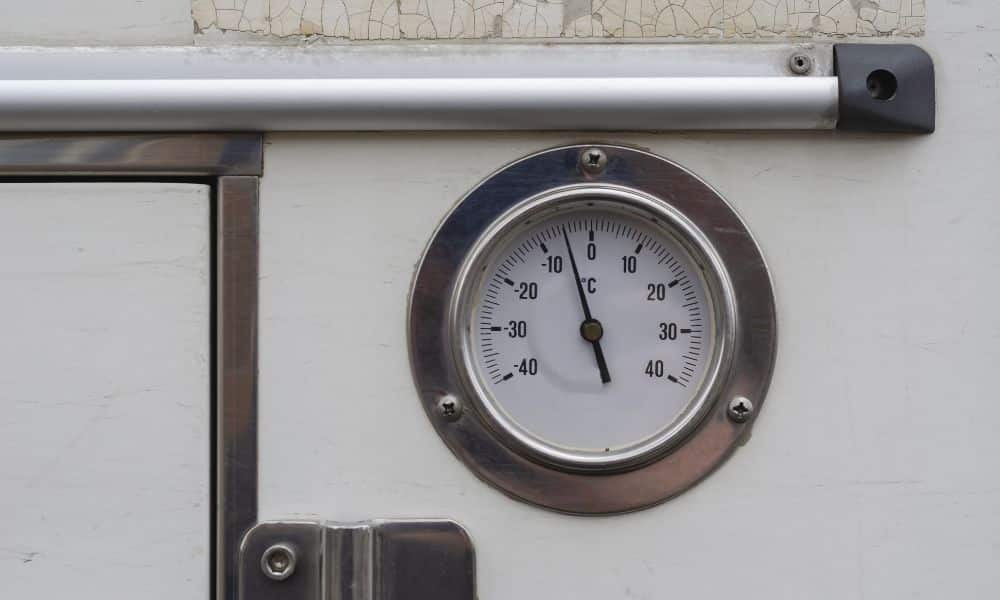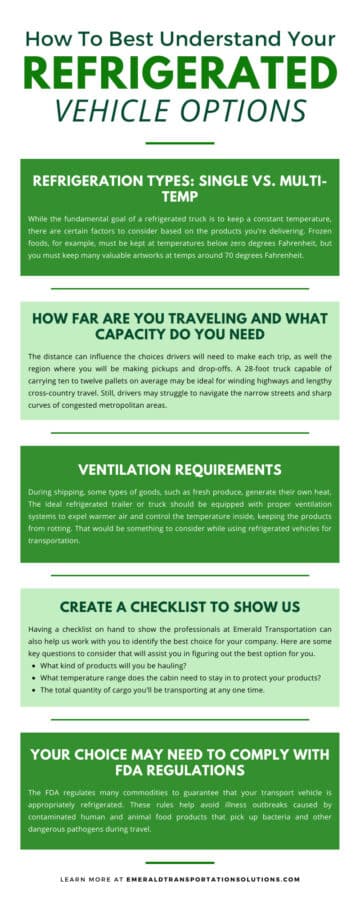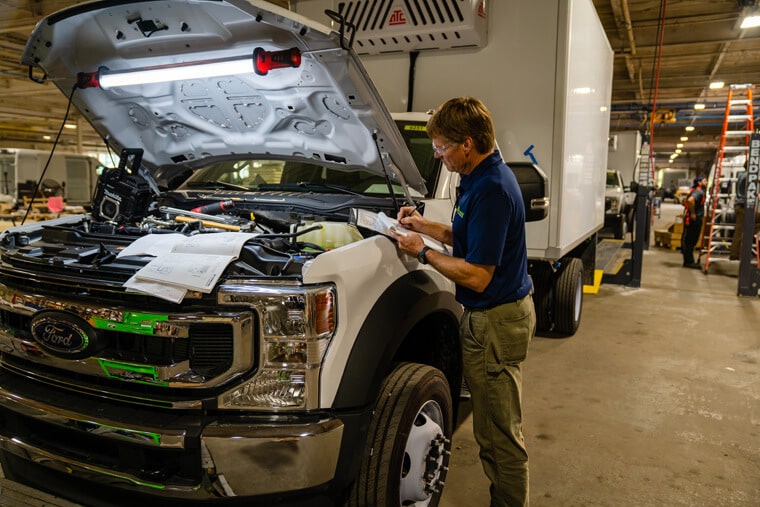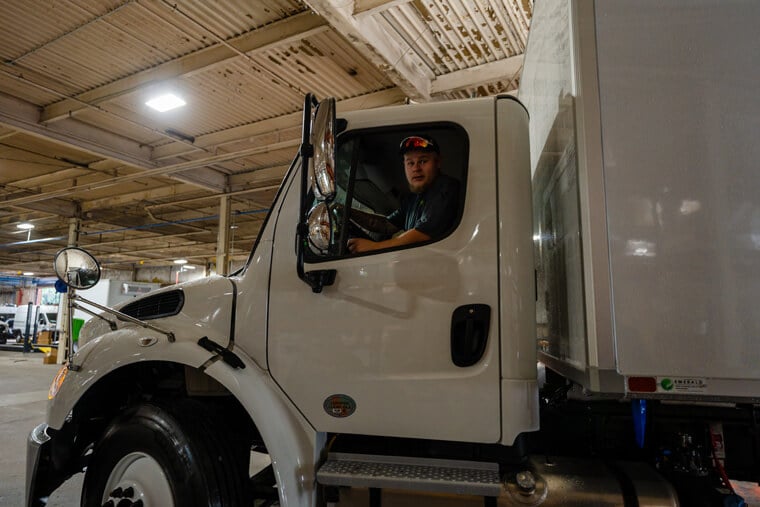
How To Best Understand Your Refrigerated Vehicle Options
Joe Dickman | September 20th, 2021
Your business may require refrigerated vehicles to transport your products efficiently and effectively. Many types supply countless benefits for you, and you will need to consider each of your options to select the ideal vehicle to match your needs. Look below to learn how to best understand your refrigerated vehicle options.
Refrigeration Types: Single vs. Multi-Temp
While the fundamental goal of a refrigerated truck is to keep a constant temperature, there are certain factors to consider based on the products you’re delivering. Frozen foods, for example, must be kept at temperatures below zero degrees Fahrenheit, but you must keep many valuable artworks at temps around 70 degrees Fahrenheit.
When transporting a similar collection of items, such as butcher meats, you may just need to keep the inside at a fixed temperature. In this scenario, a single-temp trailer will maintain a consistent temperature across the cabin. These trailers are widespread, and they’re often lightweight and affordable.
A multi-temperature truck will be a good option if you need to transport mid-temperature items alongside deep-frozen products (or any mixture of commodities that require temperatures that are detrimental with others in the same container). That enables you to subdivide the trailer area into multiple compartments. You can make fewer trips while still protecting the sustainability of the items, so they are safe when they arrive.
How Far Are You Traveling and What Capacity Do You Need
The distance can influence the choices drivers will need to make each trip, as well the region where you will be making pickups and drop-offs. A 28-foot truck capable of carrying ten to twelve pallets on average may be ideal for winding highways and lengthy cross-country travel. Still, drivers may struggle to navigate the narrow streets and sharp curves of congested metropolitan areas.
Even if you want to be conservative and choose a smaller refrigerated vehicle, this isn’t always the best choice. You’ll want to make sure it can handle the weight you’re planning on transporting, as well as enough room to pack everything in. Evaluate the position your company is in now while estimating the potential growth you’re expecting in several years. Refrigerated trucks are a significant investment, but buying one that suits your needs today as well as in the future will save you time and reduce your overall expenses.
Ventilation Requirements
During shipping, some types of goods, such as fresh produce, generate their own heat. The ideal refrigerated trailer or truck should be equipped with proper ventilation systems to expel warmer air and control the temperature inside, keeping the products from rotting. That would be something to consider while using refrigerated vehicles for transportation.
Create a Checklist To Show Us
Having a checklist on hand to show the professionals at Emerald Transportation can also help us work with you to identify the best choice for your company. Here are some key questions to consider that will assist you in figuring out the best option for you.
- What kind of products will you be hauling?
- What temperature range does the cabin need to stay in to protect your products?
- The total quantity of cargo you’ll be transporting at any one time.
- Any other equipment you may need.
The more information you can bring to the table, the more we will be able to help you when you are unsure of what type of vehicle you may need.
Your Choice May Need To Comply With FDA Regulations
The FDA regulates many commodities to guarantee that your transport vehicle is appropriately refrigerated. These rules help avoid illness outbreaks caused by contaminated human and animal food products that pick up bacteria and other dangerous pathogens during travel. If your products fall within the FDA’s scope, you must choose a refrigerated vehicle capable of keeping the required temperatures or face stiff penalties.
Examples of How Businesses Can Weigh These Options
When trying to narrow down your options, the nature of the industry you work in can frequently define your criteria. A supermarket, for example, that must supply dozens of shelves with fresh and frozen items will need vastly different sized trucks than a little mom-and-pop pharmacy that caters to locals buying medicine. Here are a few examples of various refrigerated vehicle demands in other industries to give you an idea of what you could need for your business.
Grocery Stores
As previously mentioned, grocery stores stock a wide range of products that demand different regulated temperatures to keep them safe in storage until they arrive. You’ll likely be looking for refrigerated trucks with spacious cabins and the capacity to maintain various products at different temperatures, such as vegetables and frozen meals. Depending on the size of your store, you may require anywhere from a single truck to a large delivery fleet to keep up with demand.
Floral Shops
For florists, you will want to find a refrigerated truck that suits your needs, such as multiple shelving options and an optimal roof height. Your flowers will be preserved against the unpredictable conditions outside when you’re using a refrigeration unit. Because most deliveries are in your local area, customizing a refrigerated van can be the ideal solution, and they help prolong the life of your flowers after you’ve cut them for various arrangements.
Expensive Artwork
While it may not be the first thing that comes to mind, many museum directors, art gallery owners, and high-end art collectors understand the benefits of refrigerated trucks when transporting expensive and antique art objects. A refrigerated truck excels in eliminating interior humidity, which can cause mold development or corrosion. Meanwhile, their finely calibrated temperature controls avoid melting, cracking, distortion, and any other problems that may appear because of a rapid temperature shift.
We hope this guide has helped you to figure out how to best understand your refrigerated vehicle options. Emerald Transportation Solutions has the best refrigerated vans and refrigerated trucks for sale in the market to satisfy your needs.
We’ll design and manufacture the perfect solution for your business, from compact vans to 28-foot straight trucks. To guarantee you obtain the perfect delivery vehicle, we work with all chassis, body, and refrigeration unit manufacturers no matter what options you are searching for. Don’t hesitate to contact us today with any questions you may have.
Related Articles
Contact Us
Feel Free To Contact Us If You Have Any Questions
What does under DOT mean?
Questions regarding DOT requirements come up often. 10,000 lbs GVW (gross vehicle weight) and over are commercial vehicles that fall under the Department of Transportation regulatory requirements.
What is the difference between GVW and payload?
GVW or Gross Vehicle Weight is the entire weight of the vehicle including the payload. The payload weight represents the amount of cargo you are hauling.
What is a self-powered unit and a vehicle-powered unit?
A self-powered unit has its own fuel source and will run independent of the truck. This is the heaviest and most expensive option. While vehicle-powered units run off the engine via a compressor mounted on the engine. These are less expensive and lighter in weight but you must run the truck or plug the electric standby into shore power.
What does K-factor mean and why is that important?
K-factor is a term that stands for the overall insulating value of the container (truck body). Quite simply the lower the K-factor the better the truck body will be able to maintain a given temperature and require less energy to do so.
How much lighter is a Poly Van vs a US spec body?
Poly Van bodies are very light. On average we estimate we are 75-150 lbs per foot lighter than a traditional sheet and post foamed in place body. These weight savings translates to less fuel burn and less CO2 emissions, along with added payload, the most important benefit.







